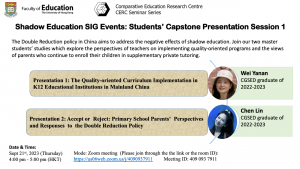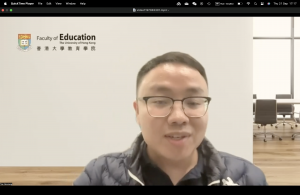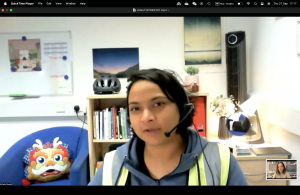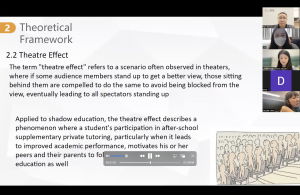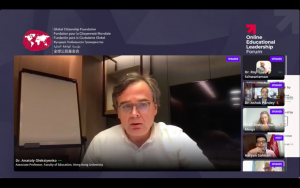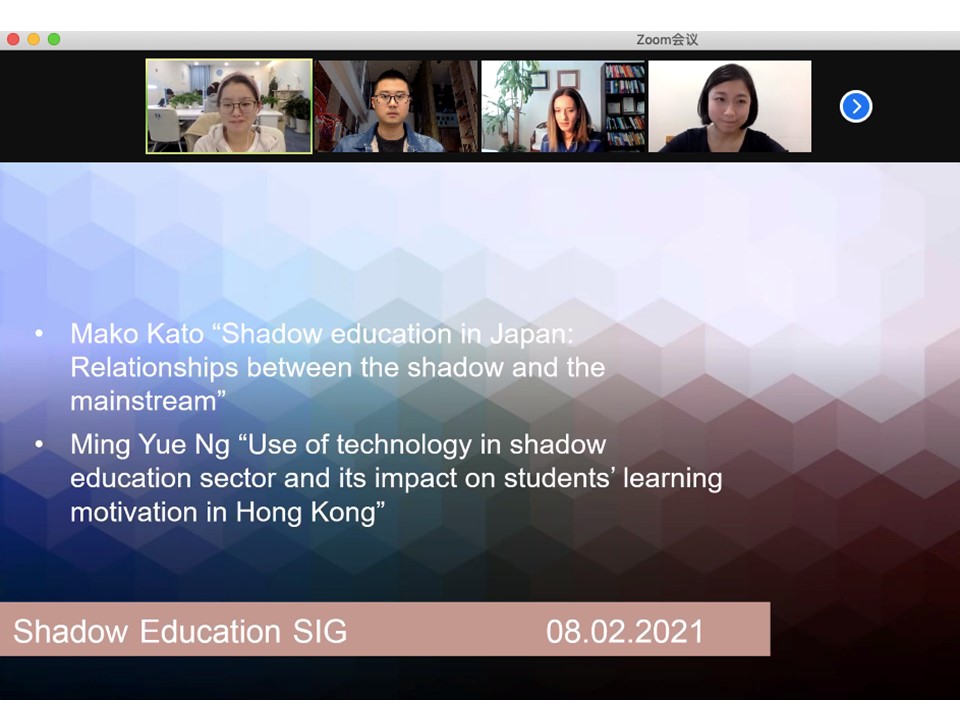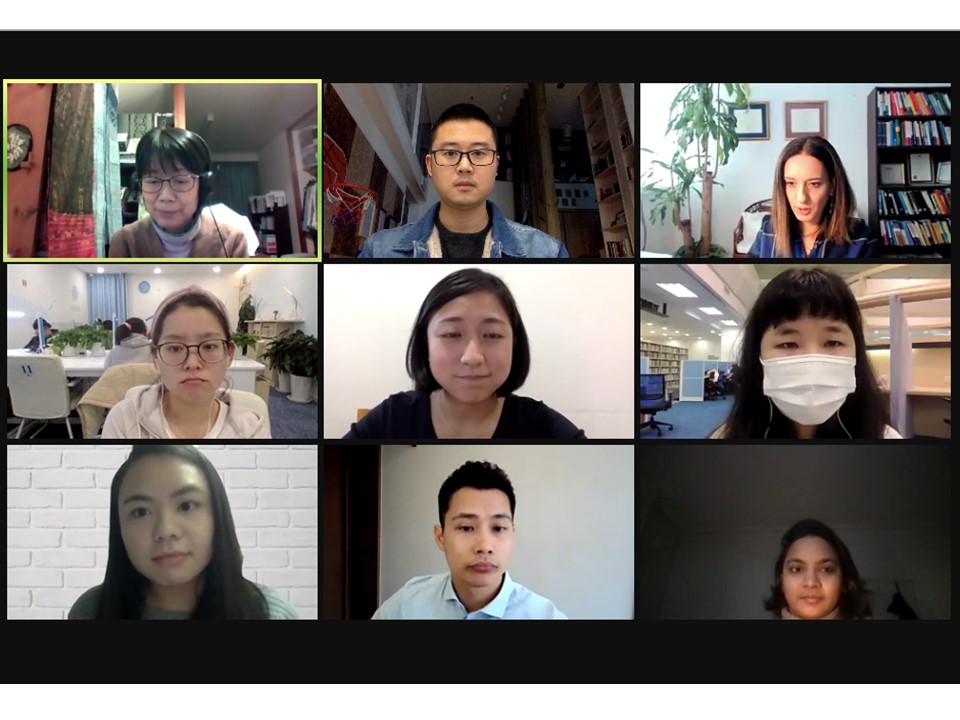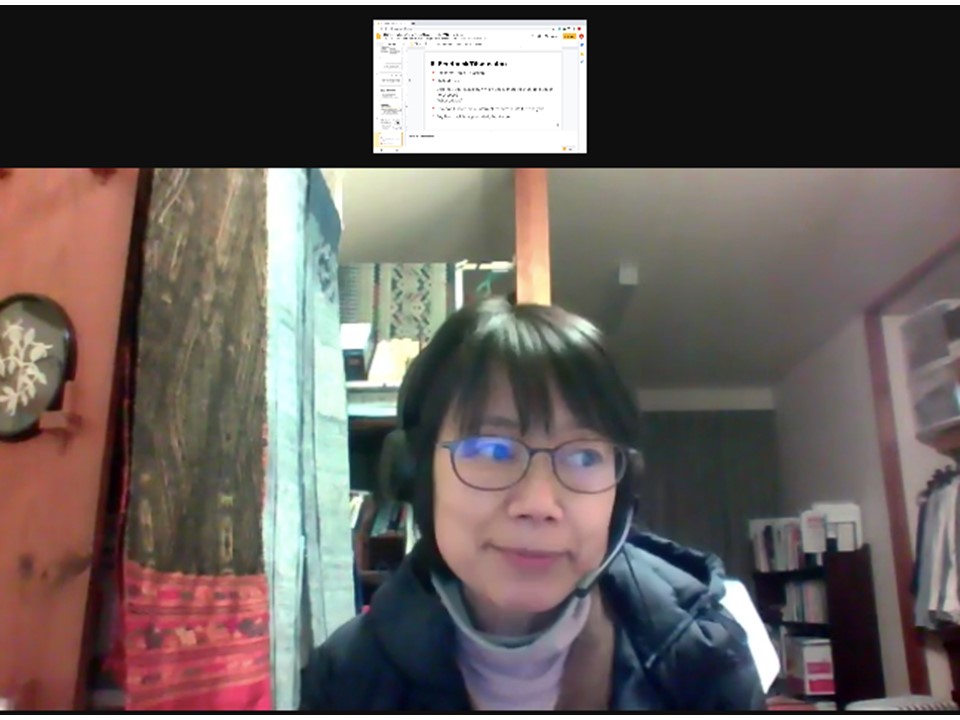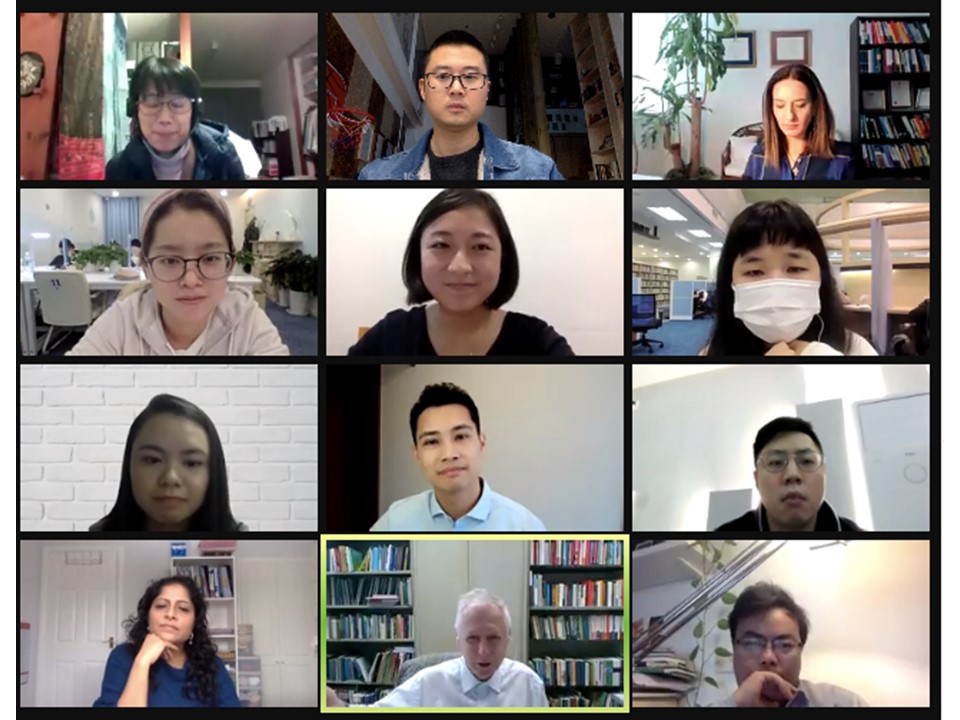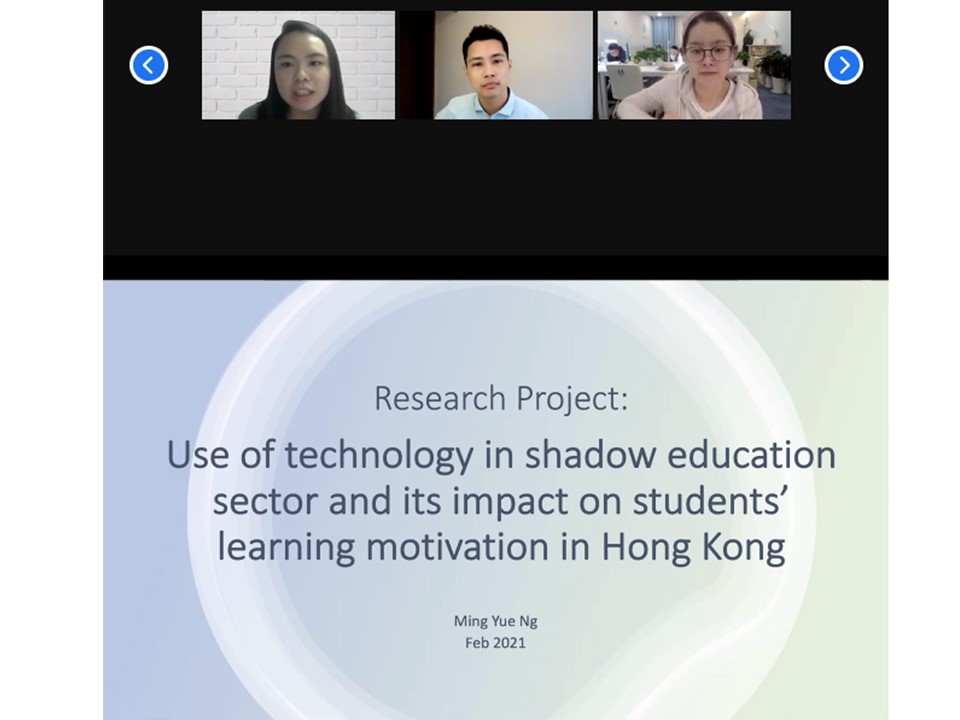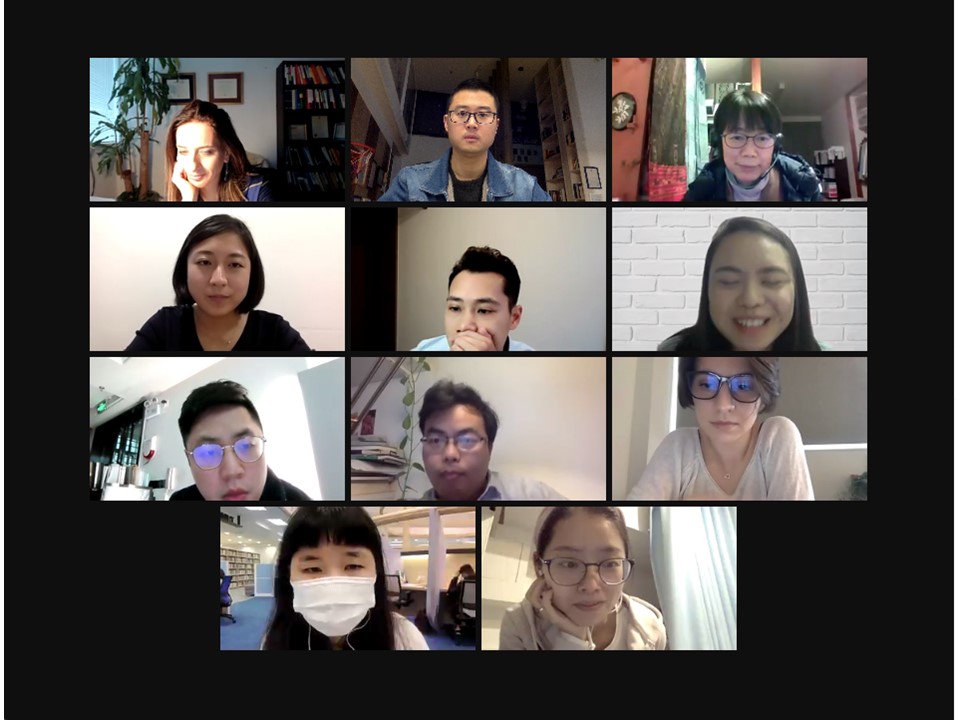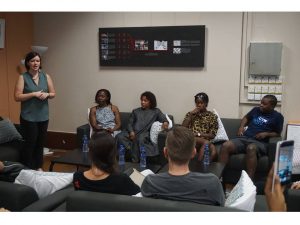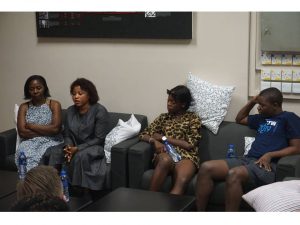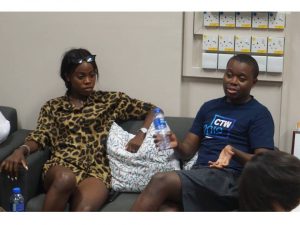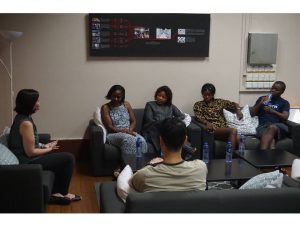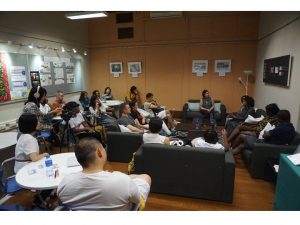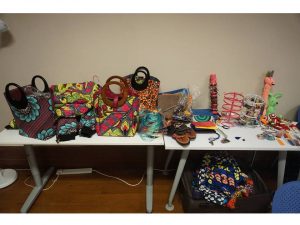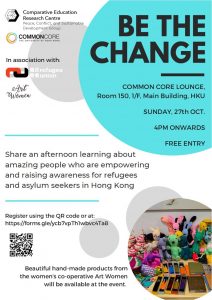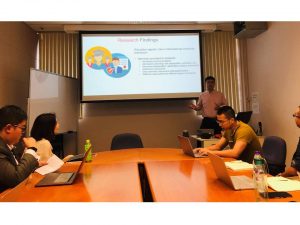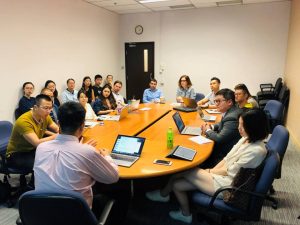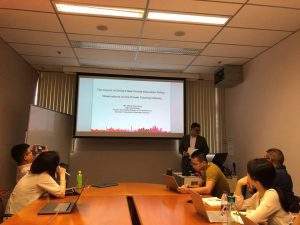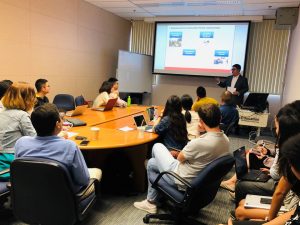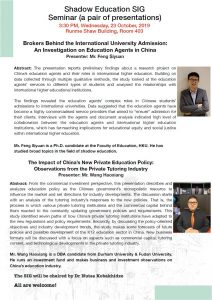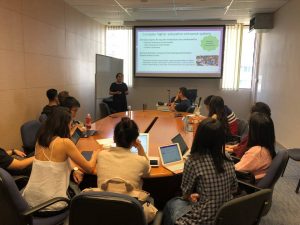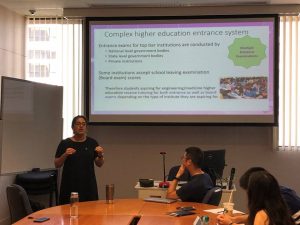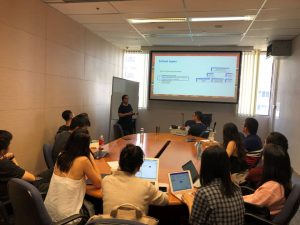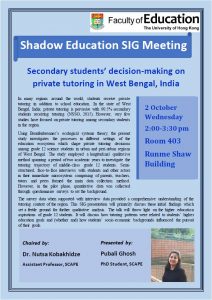CERC Management Committee recently convened to address various important matters. Director Nutsa Kobakhidze shared updates on recent events, including CERC’s successful participation as a co-sponsor in the CESHK conference. The committee unanimously approved the minutes of the previous meeting. Discussions centered around the response to CERC’s five-year review and negotiation for cooperation with a new publisher. The committee approved an extension of the contract for the secretary. The meeting concluded with no further business discussed.
Shadow Education SIG Event: Shadow education under Double Reduction policy
Shadow Education SIG successfully held an event on September 21st. This special event featured two CGSED students, Wei Yanan and Chen Lin, presenting their capstone projects on shadow education under the Double Reduction policy. The event was chaired by Mr. Tian Renxiang, secretary of CERC, and joined by Dr. Nutsa, the director of CERC, as well as more than 25 students and researchers from different countries and regions.
During the presentation, the two presenters demonstrated their understanding of the dynamics of shadow education from the perspectives of parents and teachers. Additionally, Achala, a researcher from the UK, shared her latest publication on the Double Reduction Policy following the presentations.
Now, we are excitedly looking forward to our next event on September 28th, Thursday. Stay tuned and keep an eye on your email for further details regarding this upcoming event!
Shadow Education SIG Meeting
The CERC will host the next SIG meeting on November 19, Friday, 3:30 pm HKT. This time we will listen to Ms. Gwen Zeng from the Education University of Hong Kong. Gwen is a PhD student under the supervision of Dr. Kevin Yung.
Gwen is in the process of collecting data for her doctoral study, and would like to present her ongoing work and get feedback from the SIG members. The title of her PhD study is: “Tutoring or not tutoring: Understanding parents’ agency in children’s early English learning in China”. You can find a short abstract below.
Zoom information: https://hku.zoom.us/j/
Meeting ID: 929 5002 1763
Password: 707318
Abstract
With the spread of ‘English fever’ and the controversial belief ‘earlier is better’, there is a tendency of lowering children’s start age of English learning as a foreign language in East Asian countries. However, in Mainland China, early English education for preschoolers is not encouraged by the government and English education is forbidden in all public kindergartens since 2018. An increasingly number of Chinese parents still enrolled their children in various modes of early English Private Tutoring (EEPT) during the past decade. In July 2021, the Ministry of Education (MOE) in Mainland China issued a tougher-than-expected policy named “Double Reduction” to ease the burden of excessive homework and off-campus tutoring for young students. According to the policy, English is defined as an academic subject which should not be taught to preschoolers. Both online and offline EEPT for kindergarten children are violating the policy. Some EEPT institutions closed their business or experienced a struggling transition soon after the promulgation of the policy.
Chinese parents are exercising their agency to support (or not support) their children’s English learning at this critical moment in the complicated context. They constantly make choices and carry out practices toward children’s early English learning (EEL), especially through engaging children in EEPT. Parents are the most important social actors and stakeholders in children’s EEL, but there is a dearth of research on parents’ agency in the particular context of Mainland China. This study will fill this gap by providing the knowledge of parents’ agency in their children’s EEL, expanding research on parents’ language ideologies, management and practice, and helping parents, language educators, educational administrators and policy makers understand early English education and policy issues in the context of China.
Informed by the ecological model of agency, this study employs narrative inquiry to examine Chinese parents’ agency in children’s EEL through three dimensions: the iterational (parents’ past experiences), the projective (parents’ future aspirations on their children) and the practical-evaluative (parents’ present cultural, material resources and social structures) dimensions. It also investigates how parents’ agency dynamically develops within the situated context.
The study starts in April 2021 and is still being conducted in Nanchang, a second-tier city in Mainland China. Thirteen families with children aged 3-6 years old have consented to participate in this one-year longitudinal study. The parents from these families have different socioeconomic backgrounds with various education levels, occupations and income. They will participate in three rounds of interviews throughout a year (the second round has just been completed). They also provide video clips of their children’s English learning activities (ELA), record their arrangements of these ELA in log sheets and keep on-going conversations with the researcher on their choices and practices toward children’s EEL. Through snowball sampling, the tutors and kindergarten teachers of their children are invited to attend interviews for a more comprehensive understanding of parents’ agency in the situated context.
As the data collection of this study is going on, I would like to introduce the background, theoretical framework, research questions, research methods and my current data collection during the presentation. I would be grateful to have SIG members’ feedback and suggestions on my study.
International Conference “The University purpose and Institutional Autonomy: Challenges and their impact on Georgia”
On October 29 and 30, 2021, Dr. Anatoly Oleksiyenko, CERC’s Honorary Director and Dr. Nutsa Kobakhidze, CERC’s Management Committee member, presented respectively at the virtual conference organized by East European University & Ivane Javakhishvili Tbilisi State University。
The conference explored the challenges of institutional autonomy and academic freedom in Georgian higher education which directly bear on social, cultural, economic and political developments of the country. The conference addressed the following questions:
- What should be the purpose of higher education in Georgia?
- What are strengths and weaknesses of higher education in contemporary Georgia?
- What are the solutions to the existing problems?
- How higher education can promote the social, cultural, economic and political development of the country?
- What is the economic environment within which the higher education system in Georgia functions and what are main challenges in this regard?
- How autonomous are higher education institutions in Georgia?
- What is the degree of academic freedom in higher education institutions in Georgia?
How Can We Ensure Effective Blended Learning
Dr. Anatoly Oleksiyenko, CERC’s Honorary Director, was invited by the Global Citizenship Foundation to join the scholarly panel discussing the challenges of ensuring effective blended learning during the pandemics and beyond. The presentation took place on the 16th Online Educational Leadership Forum (Online) on September 14, 2021.
The recorded webcast is available at https://www.globalcitizenshipfoundation.org/event/panel-discussion-0016/
CERC Management Committee meeting
On June 9, 2021 the CERC Management Committee met to discuss the 2020-2021 annual report and prospects of international projects and collaborations in the next academic year.
On June 17, 2021, CERC will hold its Annual General Meeting. The meeting will start at 12.15 with a report from the Management Committee and will conclude with a talk “On Teaching Comparative Education in Asia: Selected Portraits and Features” by Professor Sheng-Ju Chan, National Chung Cheng University, Taiwan (12.45-13.45).
In the picture above, [sitting, from left to right], Mark Bray, UNESCO Chair and a former CERC Director, Liz Jackson, EduHK Professor of International Education and a former CERC Director, and Yang Rui, Professor of Chinese Higher Education and Associate Dean-Research, Faculty of Education; [standing, from right to left], Nutsa Kobakhidze, MC member and convener of SIG-Shadow Education, Peter Cobb, MC member, Anatoly Oleksiyenko, CERC Honorary Director and convener of SIG-Higher Education, and Alex Fedorov, Interim Secretary.
All AGM participants will enjoy a limited-time offer – 50% off on all CERC books and monographs.
To register for the AGM, please use this Zoom registration link: https://hku.zoom.us/…/tJUrcuivqz4qHtOmJ5w9-TWlP18lG5PJNBtj
The Shadow Education SIG events on 2nd and 9th of February
The Peace, Conflict, and Sustainable Development SIG Event, 27 October 2019
The Shadow Education SIG’s meeting on 23 October, 2019
The Shadow Education SIG members gathered again on 23 October, Wednesday, at 3:30 pm in RMS 403, HKU. The SIG had two speakers: Feng Suyuan (a PhD student) presented on “Brokers Behind the International University Admission: An Investigation on Education Agents in China” and Wang Haoxian (a guest speaker from Fudan University, China) presented on “The Impact of China’s New Private Education Policy: Observations from the Private Tutoring Industry”.
The SIG was chaired by Dr Nutsa Kobakhidze and joined by Dr Hugo Horta from HKU and Dr Kevin Yung from the Education University of Hong Kong.
The Shadow Education SIG’s meeting on 2 October, 2019
“The Shadow Education SIG members met on October 2, 2019 to listen to a presentation by a PhD student Pubali Ghosh on “Secondary students’ decision-making on private tutoring in West Bengal, India. The SIG was moderated by Dr Nutsa Kobakhidze and well attended by the current PhD and MEd students. Dr Kevin Yung from the Education University of Hong Kong joined the meeting”.


